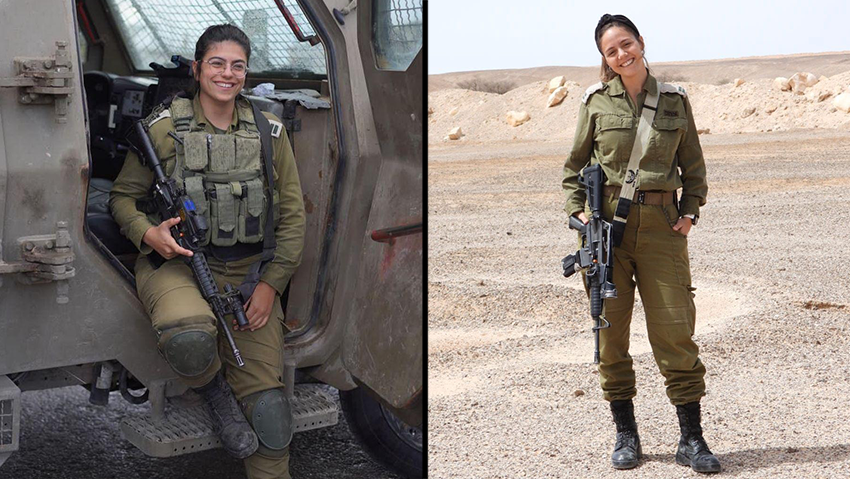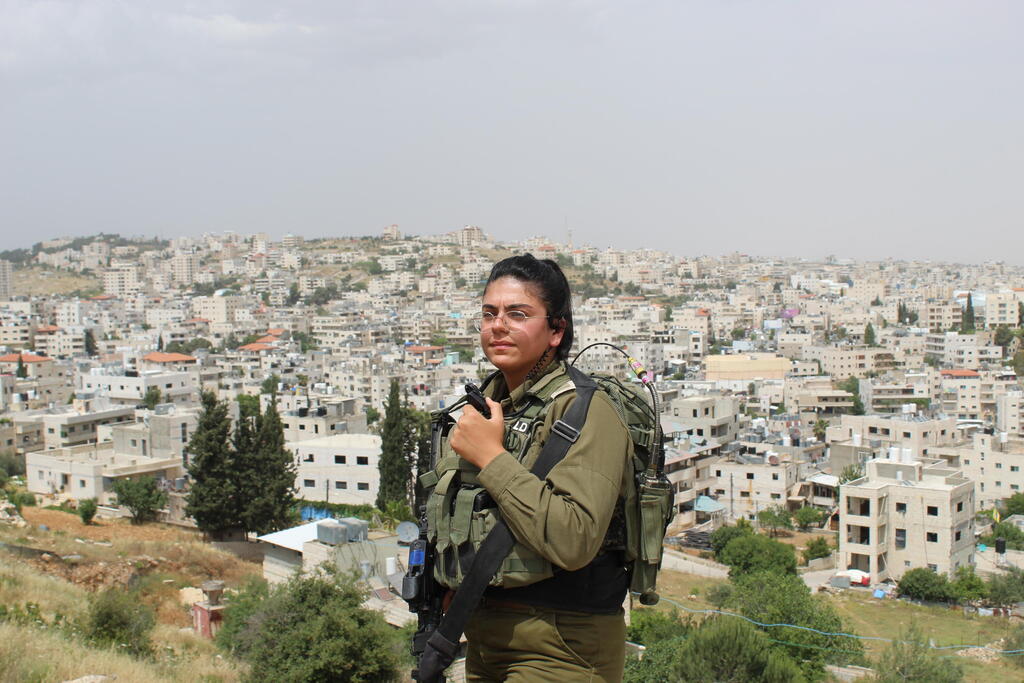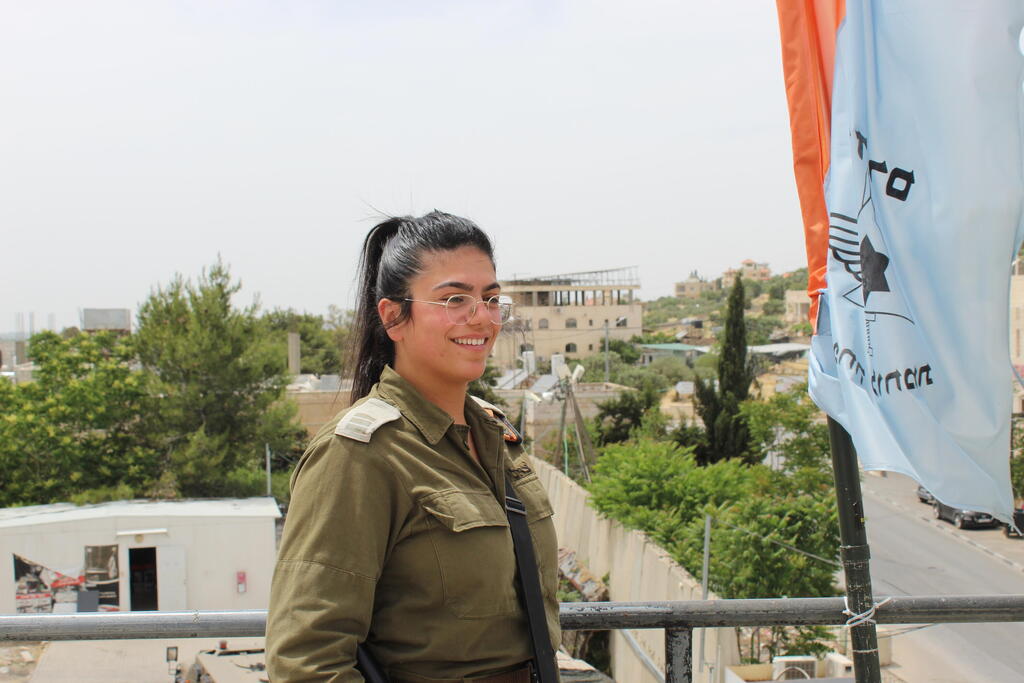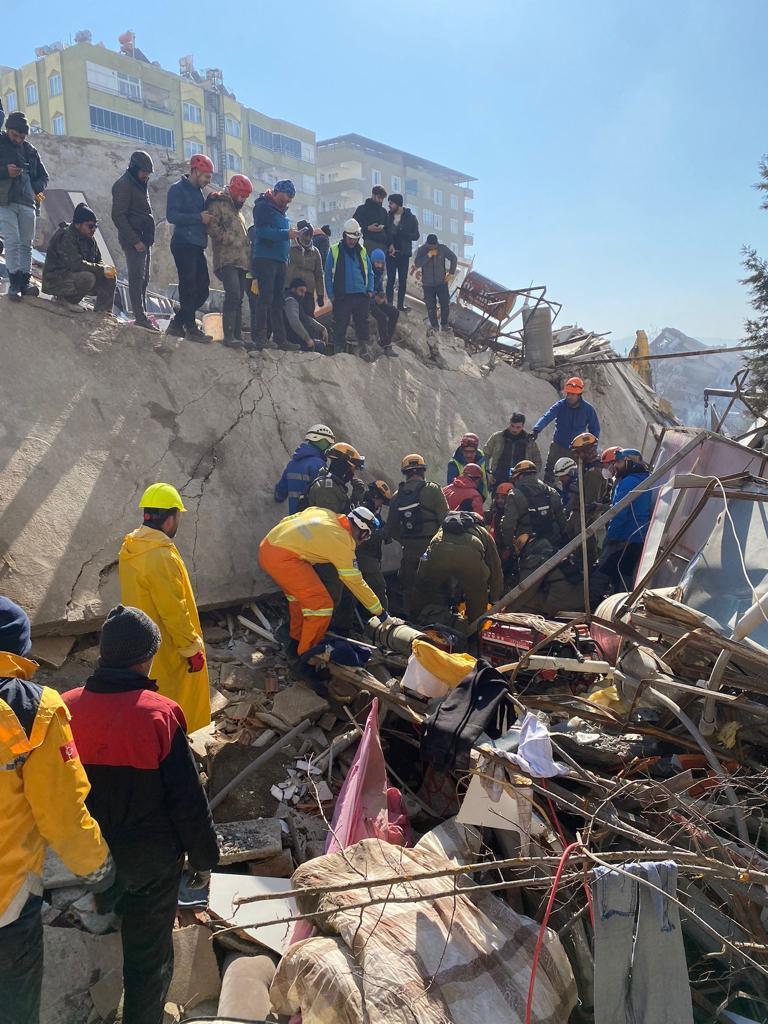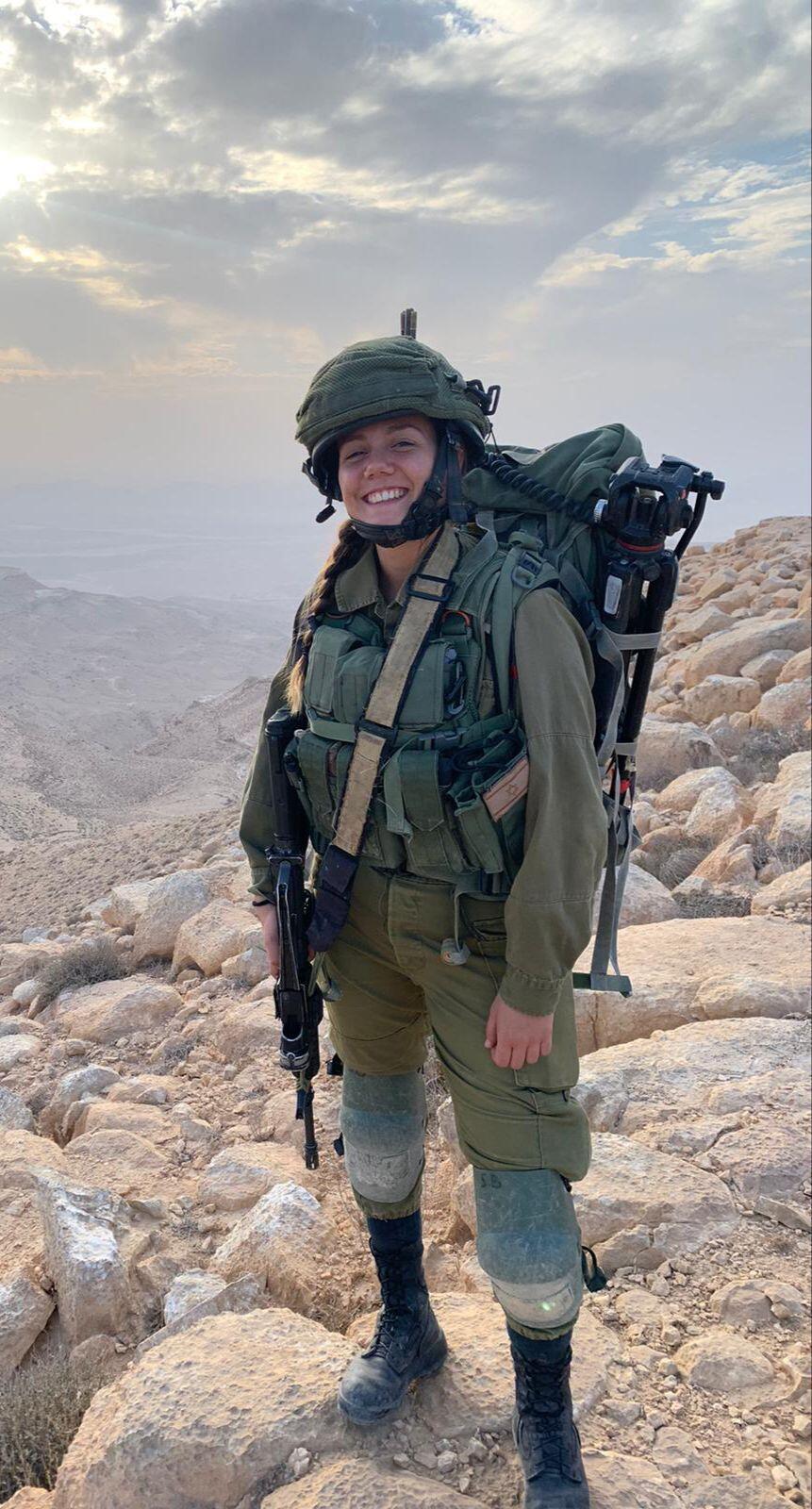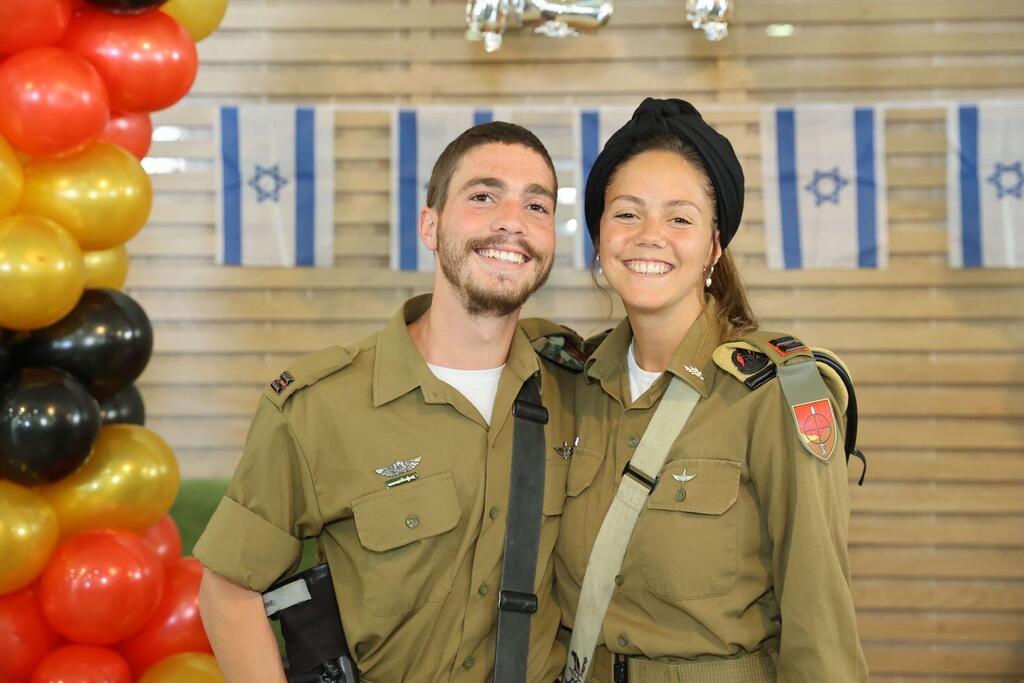Getting your Trinity Audio player ready...
Recent data from the Israel Defense Forces' Human Resources Directorate indicates a gradual increase in the number of religious girls enlisting in the army, despite opposition from certain religious leaders and politicians who object to women's service.
Read more:
These calls for women's service have resonated well in the public domain. According to the data, approximately 20% of religious girls enlisting in the military opt for combat roles. In some cases, religious Zionist girls do not settle for regular service and continue to hold significant positions, including religious officers with the rank of brigadier general.
Captain Linoy Dimri, an operations officer in Arbel Platoon, part of the elite Rescue and Training Brigade of the Home Front Command, declares, "Being exposed to different people and diverse opinions has strengthened my faith and religious beliefs." She is the commanding officer of the first religious platoon in the brigade.
We encounter her in the Etzion sector, where she has been stationed for several months, near Bethlehem and Beit Jala. "My mission is to enable the civilians here, in the entire area, to maintain a normal way of life. We operate day and night. In this sector, there is a major highway, Route 60, and our duty is to protect it from stone-throwing and Molotov cocktail attacks," she shares.
Alongside routine security tasks, in her role as an officer in the Search and Rescue Brigade, she also undergoes training to extricate captives in emergencies. In February, the training translated into real-life action when she participated in the Israeli rescue mission to Turkey following a powerful earthquake that struck the region.
"There were very challenging scenes mixed with moments of joy," she recalls. "Personally, I took part in five rescues, and we managed to reunite an entire family torn apart by the disaster.
From a state of despair and frustration among all those present, we succeeded in bringing an entire family back together to continue their lives. One of the rescued individuals, as he made eye contact, said, 'Oh, you're from Israel? Then I know I'll make it out alive.' It was a feeling of pride. It's one of the most powerful and intense emotions I've ever experienced."
A conversation with the principal
Dimri, 24, describes her upbringing as the fifth of six siblings in a home located in the Hagai settlement, near the Hebron Hills. "It's a community close to the villages. I used to see soldiers patrolling and safeguarding the settlement day and night, and in a way, it motivated me to enlist in a combat role," she explains. "I knew that as I grow up, I'll come to this place, and here I am today."
As a young girl, she moved with her family to Be'er Sheva and studied at an ulpana (a girls-only Jewish high school) in the city. "Out of almost 100 female students in my class, only five of us enlisted. Besides me, none of them pursued roles beyond regular service, and none went into combat," she shares.
Since the ulpana didn't present her with the options available for religious female soldiers in the army, and no one in her extended family had enlisted before her, she didn't know where she was heading.
"I researched, studied, asked and inquired, and in the end, I saw that this was the right and best place for me, despite all the difficulties. Around me, there were attempts to persuade me, saying, 'How will you manage to maintain your religious way of life? How will you observe Shabbat? How will you adapt to a mixed-gender environment, especially in a combat unit?'... So there were some concerns, questions and doubts, but I decided to go to a place that was unexpected and unfamiliar and confront it."
Unsurprisingly, her religious ulpana did not encourage female students to enlist in the military, but instead preferred that they choose national service. While almost all religious Zionist boys enlist in the military, with many serving in combat roles and continuing on to officer positions, most religious Zionist girls still opt for national service.
"I was never pushed to enlist. They directed us toward national service, understanding that it might be a bit harder to maintain a religious lifestyle in the IDF," Linoy recalls. "As soon as the school heard that I was enlisting, the principal took me aside for a conversation, explaining why it might not be advisable for me to enlist. I didn't pay much attention because there was something pushing me to come here."
"Some female soldiers excel more than certain male soldiers. There are numerous cases where female soldiers, who are voluntary and not obligated to serve here, exhibit higher motivation and a desire to prove themselves and show what we are capable of"
How did your family react to your decision?
"At first, they said, 'What, have you gone crazy? You don't know, you're not familiar with it, who will you ask?' My parents were worried, but today they are very supportive."
There are voices that oppose women serving in combat roles, from rabbis in pre-army yeshivas to politicians from the Religious Zionist Party. How do you respond to these voices?
"There is a lot of support and encouragement within the army. If a female soldier needs to consult with a rabbi closely about questions or doubts, or if it concerns religious observances or fasts, there are resources available.
"The first Shabbats in the army were indeed challenging; it was different from what I knew, but gradually, we learn to adapt. The army provides a platform for religious individuals. I am pleased that the conversation has changed, and there are now many more female ulpana graduates in the army. Even in national service, there are certain situations that can pose difficulties from a religious perspective. There are many restrictions in the army, including separate living quarters for male and female soldiers. However, they allow us to fulfill our religious obligations.
"Some female soldiers excel more than certain male soldiers. I believe that integrating female soldiers is important and even necessary. There are numerous cases where female soldiers, who are voluntary and not obligated to serve here, exhibit higher motivation and a desire to prove themselves and show what we are capable of."
'From my perspective, it's all pikuach nefesh'
Lieutenant Shahar Ben-Na'im, 23, is also religious and serves as a combat officer in the Combat Intelligence Collection Corps. She leads female soldiers in the southern sector and is involved in intelligence gathering from the field, conducting covert operations, and combating drug smuggling from Egypt.
Last month’s deadly attack highlighted how dangerous this border can be. Ben-Na'im is stationed slightly north of where the deadly attack occurred. "I try to encourage enlistment for combat roles and show that it is possible," she says. "A religious girl can be a combat soldier, can become an officer, and can also start a family."
She grew up in Shoham as one of six siblings. After studying at the Ofra Ulpana, which did not support girls' enlistment in the army, she spent a year at the Yonatan pre-military academy in Alumim and gained motivation there to join combat service.
About six months ago, she got married. Today, she resides in Mazkeret Batya with her husband Amit, an officer in the Kfir Brigade (also religious), whom she met at the academy. "Combining military service with marriage is challenging, but he also serves in the army as a commander in the Haruv reconnaissance unit. At least, our leaves back home are together."
"My family were definitely shocked," she says about her relatives' reaction to her decision to enlist. "My brothers served in the army, and my sisters completed full national service, but they certainly supported my decision, even when I chose to attend the officer's course. My parents were surprised, but they were happy with the decision and didn't try to argue with me."
Did they explain the options you have in the army at the ulpana?
"Usually, they bring in 'Aluma' representatives (an organization that supports religious young women during their military service) to explain what it means to be a religious girl in the army, but my ulpana didn't do that. I joined the army through the Yonatan academy. About 20% of the girls in my class ended up enlisting, but not for combat roles."
What do you think needs to happen for a higher number of religious young women to enlist?
"I think we need to visit the ulpanot and show our presence there. Of course, it's essential to go and explain in the pre-military academies. Some girls change their minds after attending the academies. Usually, word of mouth travels from the academies and seminaries."
She is aware of the challenges faced by those who maintain a religious lifestyle in the army, but she points out that the difficulty applies not only to girls but also to boys.
"My brothers enlisted as religious and became secular," she says. "The framework is challenging, and on weekends, I still need to be reachable on the phone, but it's for an important purpose. It's crucial for me to preserve everything possible within the scope of my role, to maintain my religious observance as much as possible."
Some use religious law to argue that it is forbidden for a woman to bear arms, as stated in the Torah. "A woman shall not wear anything that pertains to a man.” Others claim that women's combat service weakens the IDF, or insist that the army is not a suitable place for women.
Ben-Na'im is not bothered by it. "Many people criticize the fact that I'm religious and a combat soldier, especially that I'm still an officer even after marriage. Some even belittle it. But I'm confident in my path and demonstrate that it's possible," she says.
"For me, everything is under scrutiny. When I travel on Shabbat for activities, it's a military operation. It's the army. And when I return home on Shabbat, it's in accordance with Jewish law, without a phone or anything. Now, people encourage me even more."
Meanwhile, she plans to continue and advance her career. "I received a staff position. I'll attend a course in July and am expected to start the position in November. I signed on for another two years," she updates.


